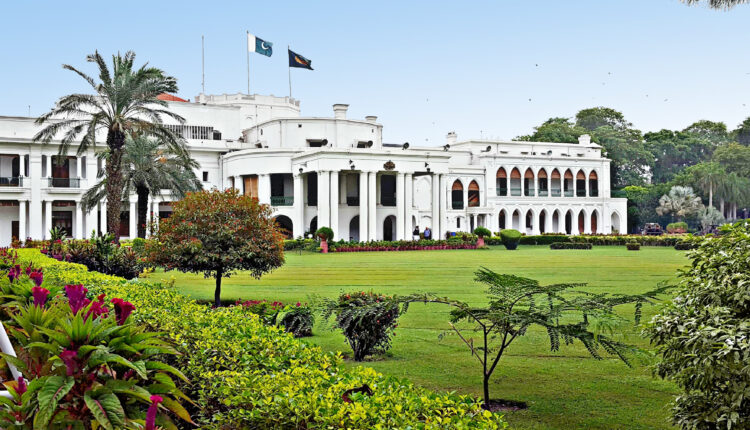Why it’s not easy to impose governor’s rule in Punjab

Islamabad: Federal Interior Minister Rana Sanaullah on Wednesday said he has prepared a summary to impose governor’s rule in Punjab hours after PTI candidate Pervez Elahi took oath as chief minister.
Salman Masood, a journalist associated with The Nation who also works for the New York Time, said “Federal interior minister’s talk about imposition of Governor Rule in Punjab seems more like an empty threat which is difficult to implement.”
According to a 2019 report by The News, Pakistan’s leading English daily, the president’s authority to impose governor’s rule in a province has been drastically restricted by the 18th constitutional amendment as Parliament and the concerned provincial assembly have been vast powers to constrain it.
The report said Clause 1 of Article 232 of the constitution says if the president is satisfied that a grave emergency exists in which the security of Pakistan, or any part thereof, is threatened by war or external aggression, or by internal disturbance beyond the power of a provincial government to control, he may issue a proclamation of emergency.
But a proviso makes it clear that for imposition of emergency due to internal disturbances beyond the powers of a provincial government to control, a resolution from the provincial assembly concerned shall be required.
In the current situation, the Punjab Assembly is unlikely to approve such a proclamation because the PTI and PML-Q have majority in the house. A reading of the proviso shows that a resolution has to be passed by the provincial assembly before the issuance of such proclamation.
The second proviso says if the president acts on his own, the proclamation of emergency shall be placed before both the Houses of Parliament for approval by each chamber within 10 days.
While such a resolution will be definitely passed by the National Assembly because of the majority of the ruling coalition, it will be certainly rejected by the opposition controlled Senate. Its passage from both the Houses is mandatory as the word “shall” has been used in the proviso.
Under Article 233, which provides for power to suspend fundamental rights, etc., during emergency period, while a proclamation of emergency is in force, the president may by order declare that the right to move any court for the enforcement of such of the fundamental rights and any proceeding in any court which is for the enforcement, or involves the determination of any question as to the infringement, of any of the rights so specified, shall remain suspended for the period during which the proclamation is in force, and any such order may be made in respect of the whole or any part of Pakistan.
However, every such order made under this Article shall be laid before both Houses of Parliament separately for approval. Here again, parliament has been empowered.
The president’s power to issue proclamation in case of failure of constitutional machinery in a province has been covered under a different provision.
Article 234 says if the president, on receipt of a report from the governor of a province, is satisfied that a situation has arisen in which the government of the province cannot be carried on in accordance with the provisions of the constitution, he may, or if a resolution in this behalf is passed by each House separately shall, by proclamation assume to himself, or direct the governor of the province to assume on behalf of the president, all or any of the functions of the Government of the Province, and all or any of the powers vested in, or exercisable by, anybody or authority in the province, other than the provincial assembly.
Such a proclamation shall be laid before a joint sitting and shall cease to be in force at the expiration of two months unless before the expiration of that period it has been approved by resolution of the joint session and may by like resolution be extended for a further period not exceeding two months at a time; but it shall not in any case remain in force for more than six months.
